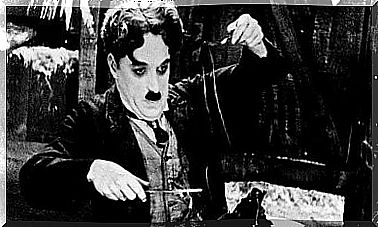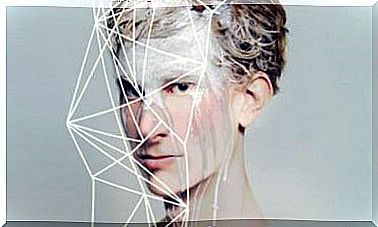What You Admire In Others Also Speaks Of You

In recent times the so-called “mirror law” has become very important as a tool for self-knowledge and personal development. You may have heard of it and even used it to understand how what bothers you about other people relates to you. What you may not be so clear about is that what you admire in others also says a lot about you.
Admiration is a positive feeling, pleasant for both the admirer and the admirer. Therefore, we consider it desirable and we do not spend time analyzing why a specific trait or behavior of others generates admiration. The reality is that all social relationships work as reflections of our own interior and provide us with really valuable information about ourselves.
Thus, admiring others can be beneficial as long as we approach it in a constructive and inspiring way. However, it can also lead us to develop a biased view of both the other and ourselves. Therefore, it is time to start asking ourselves why we are fascinated by certain characteristics of others.
What you admire in others: what does it say about you?

You also own it
This is the first case and perhaps the easiest to understand. It has been shown that we are more attracted (on a personal level, not just romantic) to those people who are more like us. That is, when someone shows a trait or value that they share with us and that we consider relevant, that makes us react positively, with admiration.
Let’s take an example: I am a very polite and respectful person with others and I consider that to be one of my best virtues. Therefore, I enhance that trait in me and I am proud to have it. When I interact with an equally educated and considerate person, I will greatly admire and appreciate that facet of their personality.
You are missing and you wish you had it
At the opposite extreme is a second possible case: you admire in the other what you are not and would love to be. But not only that, for a trait to fascinate you it has to be something that you consider impossible to develop in yourself.
It has happened to all of us: we are stunned by the sociability and extraversion of a friend when we are shy. We find our partner’s determination truly inspiring when we are indecisive. We feel that God, the universe or luck endowed that family member with a special ability who was able to leave his job and undertake what he was really passionate about.
When we feel great admiration for someone, it may be because that person shows us the opposite extreme of our shortcomings. Traits that we value as really positive, but we feel unable to achieve.

How can what you admire in others affect you?
In the first case, admiring something that is already in you can be a great tool to get to know yourself better and begin to appreciate yourself. Perhaps you have not yet become aware that that good education or that consideration that you value so positively in the other is also a magnificent attribute in you.
The difficulty arises in the second approach, when what you admire is showing you your own limitation. At first this may seem harmless: we interact with people who complement us and this can be enriching for both of us. However, we run the risk of idealizing the other.
By seeing clearly in them something that we would certainly like to have but feel lacking in, we can magnify those qualities and lose perspective. From that moment on, we can become dependent on that partner, friend or family member whom we consider to be much more capable and gifted than we are. Or we may begin to envy him and experience anger, anger, or frustration at not being able to achieve those qualities.
Work on you
If the latter is your case, pay attention to what admiration is pointing out to you. Ask yourself if really those that you see in the other are qualities that you want to develop, and to what extent you do not possess them.
From here you can begin to actively work on acquiring or improving them. May others help you get to know yourself and inspire you to be who you really want to be.









